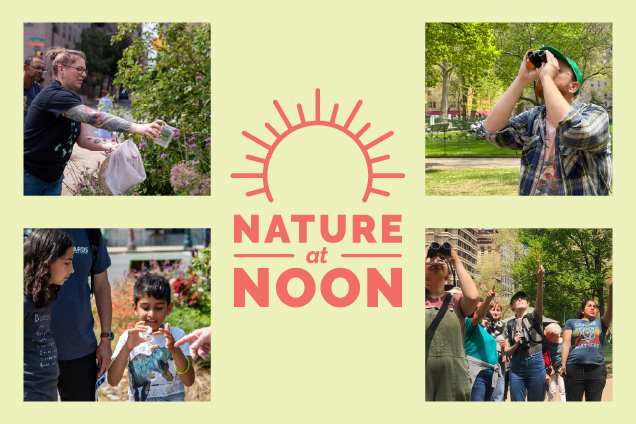Please be sure to check the event organizer’s website for any last-minute changes or cancellations prior to attending.
Have an event that will fit well on our calendar?

- This event has passed.
Practices for Ecological Landscaping: A Plant-Insect Perspective

Humans actively manage and alter the majority of earth’s habitats. Many people notice the more apparent life stages of insects (particularly pests) in warmer months, but often don’t consider the habitats that insects and other critters need to thrive in managed landscapes. In this presentation, Karin Burghardt outlines ecological theory and scientific evidence on how decisions within one’s management scope (gardens, yards, parks, and other green spaces) alter plant/animal interactions, particularly the successful completion of insect life cycles. Further, Burghardt suggests tweaks to practices such as native plant selection and placement, yard care, and pest management to retain biodiversity and function in our spaces. Weather permitting, the session will include a plant-insect interaction walk in the gardens.
This program takes place in-person at Mt. Cuba Center Thursday, May 16, 2024.
About the Instructor:
Dr. Karin Burghardt is an Assistant Professor in the Entomology Department at the University of Maryland and a Research Associate at the Smithsonian Environmental Research Center. Trained as a community ecologist, she specializes in understanding plant-insect interactions in human-modified landscapes ranging from suburban yards to abandoned agricultural fields to managed forests.
By examining how human management practices alter the support of biodiversity in these spaces, the lab’s research program helps determine best practices for how humans can share space with a variety of flora and fauna.
Karin received her M.S. and PhD in Ecology and Evolutionary Biology from Yale University, working with Oswald Schmitz on herbivore-induced defenses in goldenrod plants. Before that, she received a B.S. from the University of Delaware in 2007, working with Douglas Tallamy on the role of native plants in ecosystems. Find more information on the lab’s work on her website: burghardtlab.org.
Details
- Date: May 16, 2024
-
Time:
5:00 pm - 8:00 pm
- Cost: $59
- Event Categories: Native Plants, Nature & Community Science
- Website: https://mtcubacenter.org/event/practices-for-ecological-landscaping-a-plant-insect-perspective/
Organizer
- Mt. Cuba Center
- Phone 13022394244
- Email info@mtcubacenter.org
- View Organizer Website
Venue
- Mt Cuba
-
3120 Barley Mill Rd
Hockessin, DE 19707 United States + Google Map - View Venue Website


